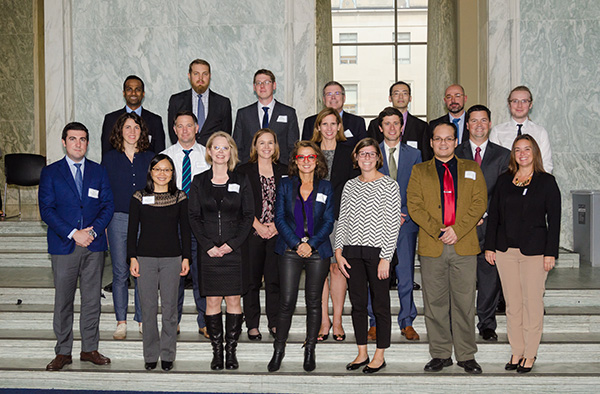Looking for links between the gut microbiome and eye disease

Over the past decade, researchers studying the human microbiome — the vast collection of bacteria, viruses and other microbes that live in our bodies — have discovered its many effects on health. Since much of our microbiome is concentrated in the digestive system, most of the attention so far has focused on its contribution to conditions like inflammatory bowel disease or the onset of food allergies.
But researchers at the University of Chicago are turning up evidence of the microbiome’s effects in new, unexpected places. They’ve discovered links between the microbiome and Alzheimer’s disease, organ transplant rejection, and effectiveness of cancer treatments. Now, Dimitra Skondra, MD, PhD, assistant professor of ophthalmology and visual science, is studying possible connections between the gut microbiome and eye disease.
Age-related macular degeneration (AMD) is the leading cause of vision loss, affecting more than 10 million Americans. It’s caused by the deterioration of the retina, the layer at the back of the eye packed with nerve cells that captures images and sends them to the brain. The retina is like a camera’s sensor, and its central portion, called the macula, is the most sensitive area responsible for focusing the center image of what we see.
When cells of the macula deteriorate, people start to get blurred or hazy vision. As the condition worsens, they can lose central vision altogether. There are no known causes for macular degeneration, although it’s more likely to occur in people over the age of 55. People with a family history of AMD are at higher risk as well. There is no cure for AMD, although lifestyle changes like healthy diet, exercise, and avoiding smoking can reduce risk.
Age-related macular degeneration(AMD) is the leading cause of vision loss, affecting more than 10 million Americans.
“We know that genetics, lifestyle, diet, smoking, and where you live seems to affect disease development, but we really don't know how they interact to determine who's going to develop more advanced AMD,” Skondra said. “But we also know the gut microbiome plays a key role in metabolism, our immune system and lifestyle-induced changes in our body, so that’s how I began to think the two could be related.”
During her post-doctoral fellowship at Harvard, Skondra was studying the effects of a high-fat diet and how it worsens AMD symptoms in mice. She could see the impact clearly — even mice that weren’t genetically predisposed to AMD had worsening symptoms after a few weeks of a high-fat diet.
A light bulb moment
When she joined the UChicago Medicine faculty in 2016, she learned about research by Eugene B. Chang, MD, the Martin Boyer Professor of Medicine, Gnotobiotic Mouse Facility at UChicago to develop the first germ-free mouse model of AMD. These mice are born and raised in sterile, germ-free environment so they have no bacteria at all. Germ-free models like this are considered the gold standard for microbiome studies because they’re a clean slate. Any changes to their microbiome are introduced deliberately and can be tracked with specific experiments.
“Now we can move forward to give them different diets, compare different genetic backgrounds and really break it down to differences in individual microorganisms,” Skondra said.

Skondra was recently selected as one of 20 Emerging Vision Scientists in the U.S. They Dr. Dimitra Skondra is a highly respected, board-certified retina specialist, with a particular focus on the medical and surgical treatment of vitreoretinal diseases. She in an expert in delivering care for diabetic eye disease, retinal detachment, age-related macular degeneration, retinal vein occlusions, eye trauma, proliferative vitreoretinopathy and intraocular infections..jpg%3Fsc_lang%3Den&w=3840&q=75)
Dimitra Skondra, MD
